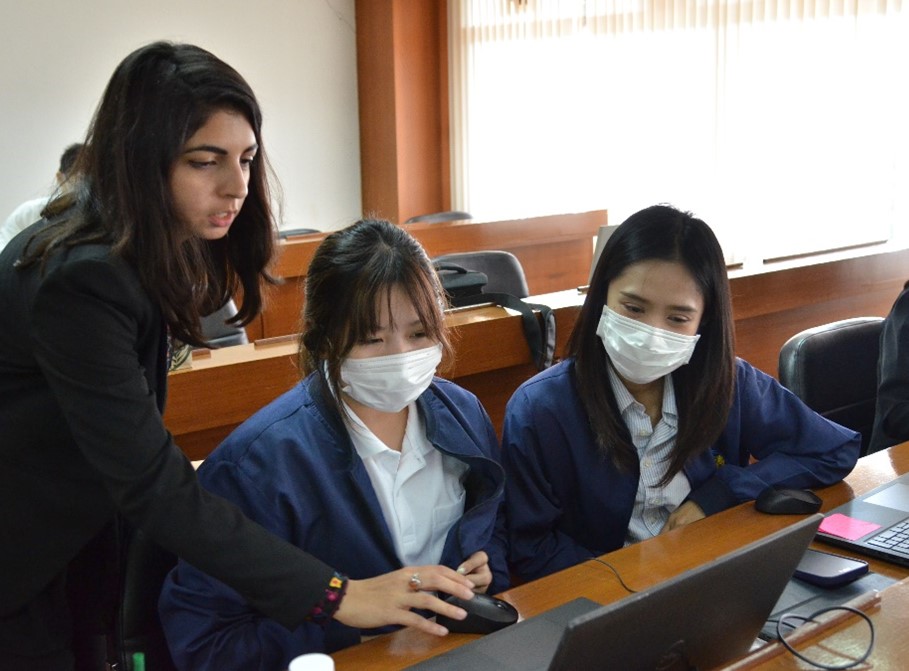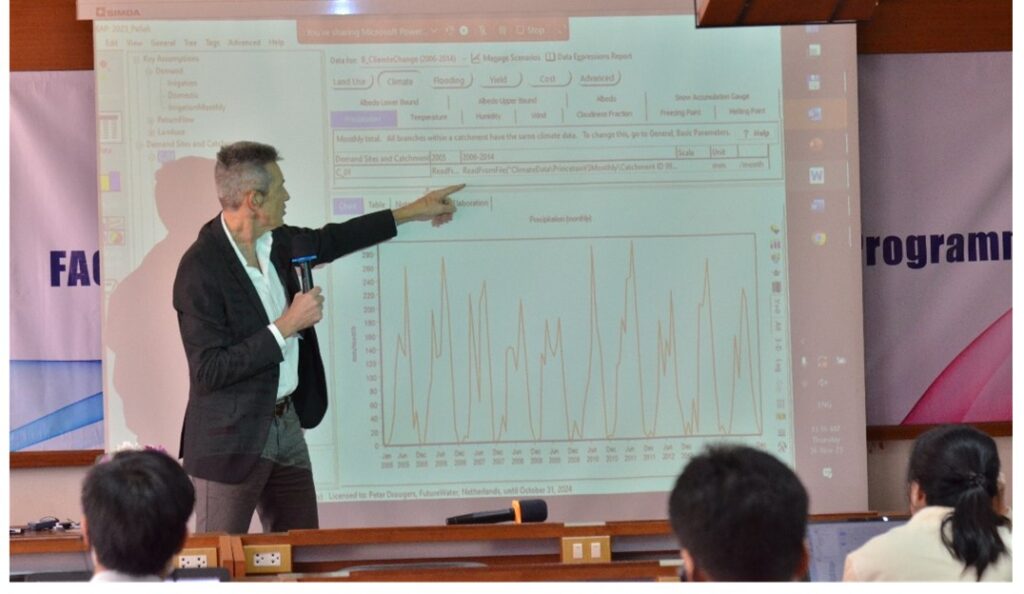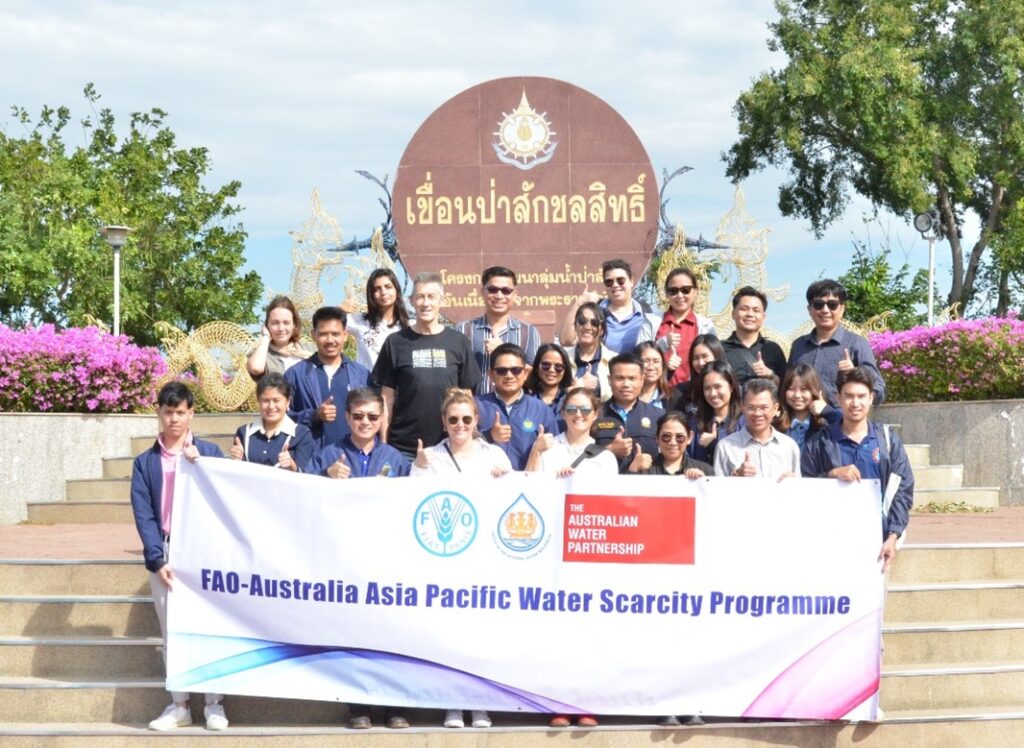The second Water Accounting training under FAO’s Water Scarcity Program took place from 13 – 18 November in Bangkok. Participants from various governmental departments and academic institutions gained practical experience in utilizing different geospatial and water resources modeling tools for developing a water account.
As part of the Water Scarcity Program (WSP), FutureWater designed and delivered a two-phase water accounting training program in Thailand. The WSP, designed by FAO-RAP and partners, aims to bring agricultural water use within sustainable limits and prepare the sector for a productive future with less water. The program aims to assess the ongoing issue of water scarcity in the region, evaluate potential management options, and assist partner countries to implement adaptive management in the agriculture water sector using innovative tools and approaches.
The first phase of the training primarily focused on introducing and better understanding the concept of water accounting, its components and approaches. Participants worked with tools such as REWAS and Follow the Water (developed by FutureWater in collaboration with FAO) to conduct water accounting in agricultural systems at different scales.
The second phase of the training aimed at extracting, processing and analysing data for the Pa Sak basin to build a water account. Participants analysed trends in precipitation, evapotranspiration, and land use using Google Earth Engine and developed a WEAP model to assess water availability and shortages under different scenarios. The training was followed by a visit to the Pa Sak basin where the participants gained insights from different water users and managers. These included the water user group at Kaeng Khoi-Ban Mo Joint Management Committee for irrigation, Pa Sak Jolasid dam and hydropower operators, Nong Khae industrial estate managers and provincial waterworks authority officials responsible for water supply.
In the coming months, FutureWater will focus on providing technical inputs for the regional WSP events and highlight the technical challenges of implementing water accounting and allocation in Southeast Asia for the WSP High Level Technical Meeting scheduled in June 2024.






